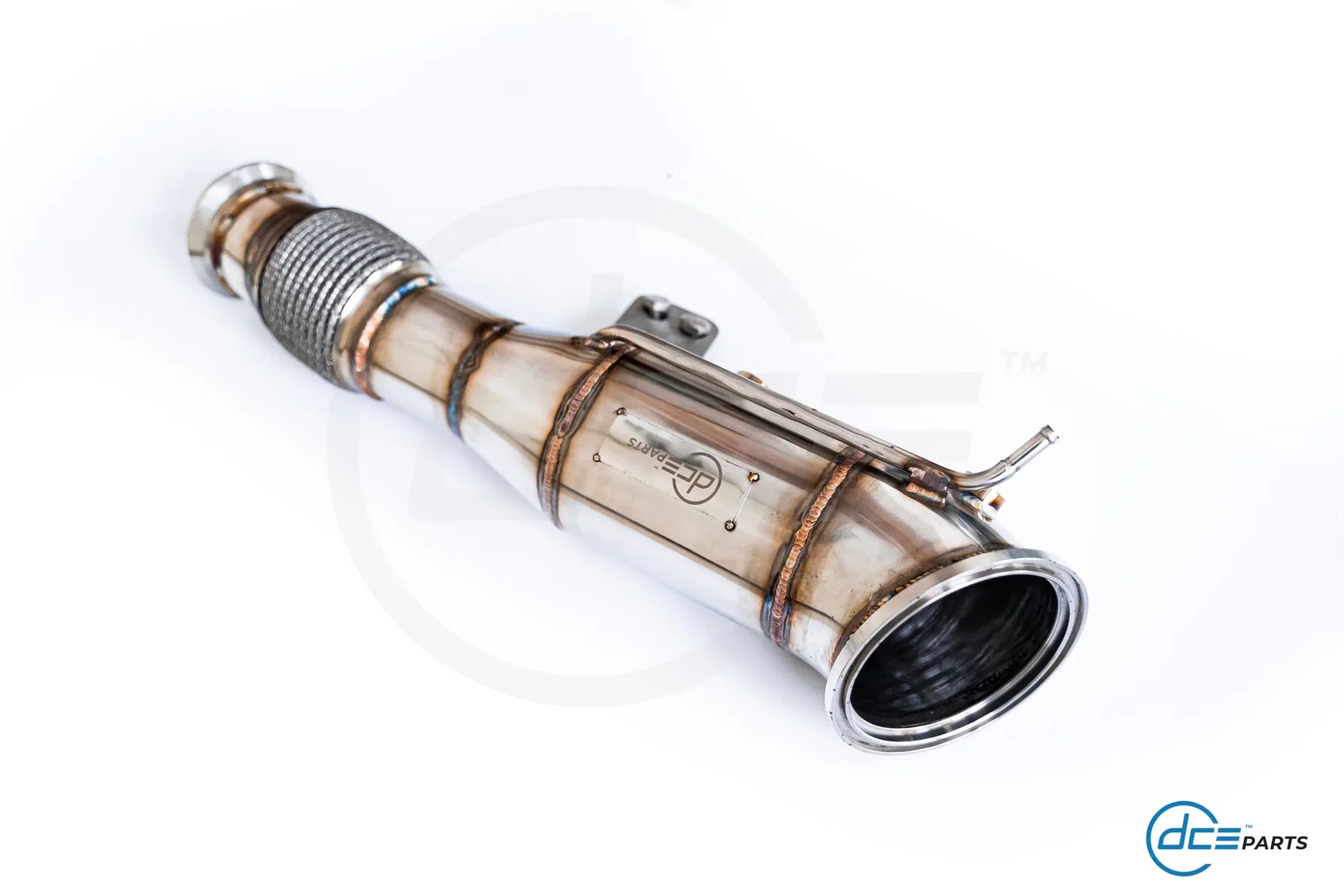Upgrade Your Car's Performance: The Benefits of Upgrading Your Downpipe

Are you looking to enhance the performance of your car's exhaust system? Upgrading your downpipe could be the answer. A downpipe is a crucial component of your exhaust system that connects the turbocharger to the exhaust system's main pipe. By replacing your stock downpipe with an upgraded one, you can increase horsepower, improve exhaust flow, and boost overall engine performance. In this article, we'll explore the benefits of upgrading your downpipe and provide tips on how to choose the best one for your vehicle.

Why Upgrade Your Downpipe?
Are you looking to improve the performance of your car? Upgrading your downpipe is a great way to do so. In this blog post, we'll explore the benefits of upgrading your downpipe and provide tips on how to choose the best one for your vehicle.
First, let's discuss what a downpipe is and its role in your car's exhaust system. A downpipe is a component that connects the turbocharger to the exhaust system's main pipe. It's typically made of stainless steel and is designed to withstand the high temperatures and pressures of the exhaust system.
Now, let's explore the benefits of upgrading your downpipe:
Increased horsepower: A high-performance downpipe can increase the horsepower of your car by reducing exhaust backpressure. This allows the engine to breathe more freely, resulting in more power.
Improved exhaust flow: Upgrading your downpipe can improve the exhaust flow, which can result in a smoother and more efficient engine. This can also help reduce turbo lag, which is the delay between pressing the accelerator and the turbocharger spooling up.
Better sound: A high-performance downpipe can improve the sound of your car's exhaust. It can give it a deeper and more aggressive tone, which is especially desirable for car enthusiasts.
Now that we've discussed the benefits of upgrading your downpipe, let's talk about how to choose the best one for your vehicle. Here are some tips:
Consider the material: Downpipes are typically made of stainless steel, but there are different grades of stainless steel. Look for a downpipe that's made of high-quality stainless steel to ensure it can withstand the high temperatures and pressures of the exhaust system.
Look for a downpipe with a consistent and smooth flowing diameter. These downpipes are designed to maintain a consistent diameter throughout the pipe, which can improve exhaust flow and reduce turbulence.
Check for compatibility: Make sure the downpipe you choose is compatible with your car's make and model. Some downpipes may require modifications to fit properly.
Upgrading your downpipe can provide a significant boost to your car's performance. It can increase horsepower, improve exhaust flow, and enhance the sound of your exhaust. When choosing a downpipe, consider the material, look for a mandrel-bent design, and ensure compatibility with your vehicle. With a high-performance downpipe, you'll enjoy a more exciting driving experience and improved engine performance.

Why Are Downpipes So Popular?
Downpipes are popular among car enthusiasts because they offer several benefits to the car's engine performance. Downpipes play a crucial role in the car's exhaust system by connecting the turbocharger to the exhaust system's main pipe. By upgrading the stock downpipe with a high-performance one, you can increase horsepower, improve exhaust flow, and reduce turbo lag.
One of the most significant benefits of a high-performance downpipe is increased horsepower. By reducing exhaust backpressure, the engine can breathe more freely, resulting in more power. Additionally, an upgraded downpipe can improve the exhaust flow, which can result in a smoother and more efficient engine. It can also reduce turbo lag, which is the delay between pressing the accelerator and the turbocharger spooling up.
Another reason downpipes are popular is that they can enhance the sound of the car's exhaust. Upgrading the downpipe can give the car a deeper and more aggressive tone, which is especially desirable for car enthusiasts.
Overall, downpipes are popular because they offer a relatively easy and cost-effective way to improve the engine's performance and the car's overall driving experience. With increased horsepower, improved exhaust flow, and a more aggressive exhaust note, a high-performance downpipe can provide a significant boost to any car enthusiast's vehicle.

Other Benefits of Upgrading Your Downpipe
In addition to the benefits mentioned above, upgrading the downpipe can also lead to better fuel economy. By improving the exhaust flow and reducing backpressure, the engine can operate more efficiently, resulting in better fuel economy. This is especially true for turbocharged engines, where an upgraded downpipe can help reduce turbo lag, allowing the engine to operate more efficiently.
Furthermore, high-performance downpipes are often designed to be more durable and long-lasting than the stock downpipes. They are made of high-grade stainless steel, which is corrosion-resistant and can withstand the high temperatures and pressures of the exhaust system. As a result, a high-performance downpipe can offer better durability and longevity than a stock downpipe.
Lastly, upgrading the downpipe can also help to future-proof your car for any additional modifications you may want to make. By improving the exhaust flow and reducing backpressure, the engine can handle additional modifications such as a new exhaust system, an upgraded turbocharger, or an engine tune. Therefore, upgrading the downpipe can be a wise investment for any car enthusiast looking to make future modifications to their vehicle.
Overall, downpipes offer numerous benefits that make them popular among car enthusiasts. By improving engine performance, enhancing the exhaust note, and improving fuel economy, upgrading the downpipe can provide a significant boost to any car enthusiast's vehicle.


Do you need to remap your ECU?
In most cases, it is not necessary to rewrite the ECU (Engine Control Unit) when upgrading to a performance downpipe. However, in some cases, it may be necessary to remap or tune the ECU to ensure the engine operates optimally with the new downpipe.
When upgrading to a performance downpipe, the increased exhaust flow can cause a lean condition in the engine, where the air-to-fuel ratio is not optimal. This can lead to engine damage, reduced performance, and increased emissions. To prevent this, it may be necessary to remap or tune the ECU to adjust the air-to-fuel ratio and ensure the engine operates optimally.
Additionally, upgrading to a larger downpipe can cause the turbocharger to spool up faster, resulting in increased boost pressure. This increased boost pressure can cause the engine to run lean, which can lead to engine damage. To prevent this, a professional tuner can adjust the ECU to ensure the engine runs at the optimal air-to-fuel ratio and boost pressure.
Therefore, while it is not always necessary to rewrite the ECU when upgrading to a performance downpipe, it is recommended to consult with a professional tuner to ensure the engine operates optimally and to prevent any potential engine damage.
To prevent Check Engine Lights from Appearing, you can also go for a remap of the ECU, or a Cat & OPF delete emulator like LEIB or other brands.






